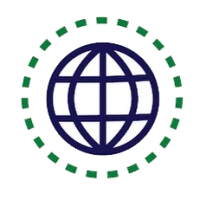PHP is a server-side scripting language, mainly used for web development but also used as a general-purpose programming language. Object-Oriented Programming (PHP OOP), is a type of programming language principle added to php5, that helps in building complex, reusable web applications.
Get started with PHP Object-Oriented Programming (OOP) in our comprehensive course. Designed for beginners, this course will guide you through the fundamentals of PHP OOP, providing you with the skills to write more modular and maintainable code.
The Object Oriented concepts in PHP are:
- Class − This is a programmer-defined data type, which includes local functions as well as local data. You can think of a class as a template for making many instances of the same kind (or class) of object.
- Object − An individual instance of the data structure defined by a class. You define a class once and then make many objects that belong to it. Objects are also known as instance.
- Inheritance − When a class is defined by inheriting existing function of a parent class then it is called inheritance. Here child class will inherit all or few member functions and variables of a parent class.
- Polymorphism − This is an object oriented concept where same function can be used for different purposes. For example function name will remain same but it make take different number of arguments and can do different task.
- Overloading − a type of polymorphism in which some or all of operators have different implementations depending on the types of their arguments. Similarly functions can also be overloaded with different implementation.
- Data Abstraction − Any representation of data in which the implementation details are hidden (abstracted). * Encapsulation − refers to a concept where we encapsulate all the data and member functions together to form an object.
- Constructor − refers to a special type of function which will be called automatically whenever there is an object formation from a class.
- Destructor − refers to a special type of function which will be called automatically whenever an object is deleted or goes out of scope.
PHP Object Oriented Programming Basics
Delve into the PHP Object-oriented Programming basics and discover key concepts like inheritance in PHP and encapsulation in PHP. This course offers practical examples and hands-on exercises to help you grasp these essential OOP principles effectively.
This self-paced course is the continuation of our previous (Introduction to PHP programming) course. This course is a must for anyone interested in doing professional web development with PHP.
Topics and Subtopics
Here is the course outline:
1- Create PHP Pages and a PHP class
2- Add data, function/methods to your class
3- Getter and setter functions
4- The ‘$this’ variable
5- Include your class in your main PHP page
6- Instantiate/create your object
7- The ‘new’ keyword
8- Set an objects properties
9- Accessing an object’s data
10- Directly accessing properties
11- Constructors
12- Create an object with a constructor
13- Restricting access to properties using ‘access modifiers’
14- Restricting access to methods
15- Reusing code the OOP way: inheritance
16- Overriding methods
Requirements
Good knowledge of PHP programming.
Related Courses
- Web Design with WordPress
- Intro to Joomla CMS
- Introduction to Drupal CMS
- Learn Node.JS, Express.JS and MongoDB
- Web Development with PHP & MySQL
Private Tutoring Classes
To take skills you learn from this course to the next level, taking the following tutoring classes are highly recommended. It is also a great opportunity to discuss your questions and problems related to this course with an experienced instructor:
- Web design and development tutoring sessions- Weekly and monthly plans
- PHP, MySQL and PHP Object-Oriented Programming- Private tutoring sessions
What Is Next?
After finishing this course, you can enroll in any of following Coding Bootcamps school classes:
- Web Design with Bootstrap
- Intro to Angular.JS Framework
- Intro to React.JS Framework
- Vue.JS Framework
- Introduction to Database Design
- Learn SQL Programming by Examples
- Introduction to Linux OS
